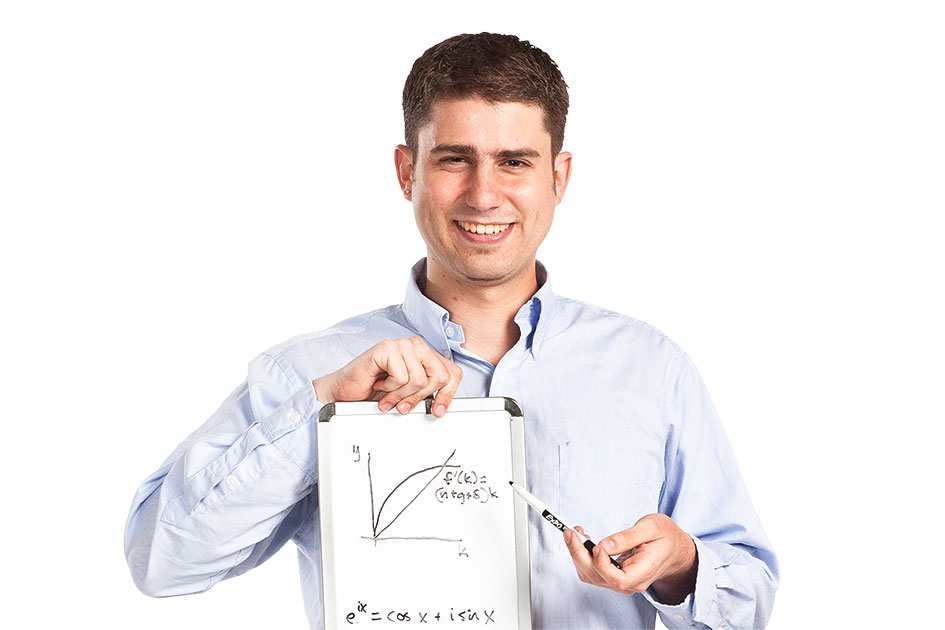Michael Kincaid
Mathematics/Economics
Hometown: Palo Alto, California
Adviser: Prof. Kim Clausing [economics 1996–]
Thesis: “Is the Euro Optimal? An Examination of Trade and Cycles in the Eurozone”
What it’s about: I examine whether the European countries are structurally suited to sharing a single currency, and hence, perhaps, whether the euro is worth saving. I find that the single currency does lead to convergence—but do the European countries actually want to become more similar?
What it’s really about: Economics as the continuation of politics by other means.
Who I was when I got to Reed: I dropped out of high school my sophomore year, got my equivalency and ended up a 22-year-old IT manager for a Silicon Valley startup. Some mentors and “spiritual advisers” strongly encouraged me to consider the full-time, small-liberal-arts route, and I never looked back.
Influential book: Grand Pursuit by Sylvia Nasar is a history of economics from Smith through Marx, Keynes, Hayek, and the interwar years. Economics was this incredibly practical, vital science back then, maybe not so much a discipline of its own as a set of tools for thinking about the questions of the day (like “how do we recover from the war?”). I would love to recover some of that vitality and breadth in my future work, though ideally not at the expense of the precision in analytical tools that we’ve developed since.
Favorite spot: Two-way tie between the computer lab and the east end of the canyon.
Random thoughts: At Reed I had the resources to go after anything I wanted to pursue. I particularly appreciated the close attention from faculty and the amazing thesis advising. We’re surrounded by peers who are deeply immersed in what they’re doing, which is tremendously valuable.
Cool stuff I did: Got to be president of Reed for a day. Kayaked in the Willamette. Held an off-campus job. In epistemology class with Prof. Troy Cross [philosophy 2010–] I discovered that I do not know anything, in the deepest and most radical of senses.
How Reed changed me: I’m less confident that you can think about solving complex problems in big ways, but at the same time I feel like I have the knowledge, confidence, and agency to say, “I know how to do that kind of research.” You have to attack a little bit at a time and there are lots of small ways you can start piecing things together.
Scholarships, awards, or financial aid: Graduated Phi Beta Kappa and with the Meier economics award; Miller-Mintz collaborative faculty summer research grant, summer 2011 for work with Prof. Noelwah Netusil [economics 1990–].
What I would tell prospies: Reed is about questioning along the way what you’re doing and why and how you got there. What do I need to be doing in the world, and who am I and why? Come prepared for an experience that is going to blow your mind, but it may be completely different from what you planned.
What’s next: Pursue a PhD in economics from Harvard.
